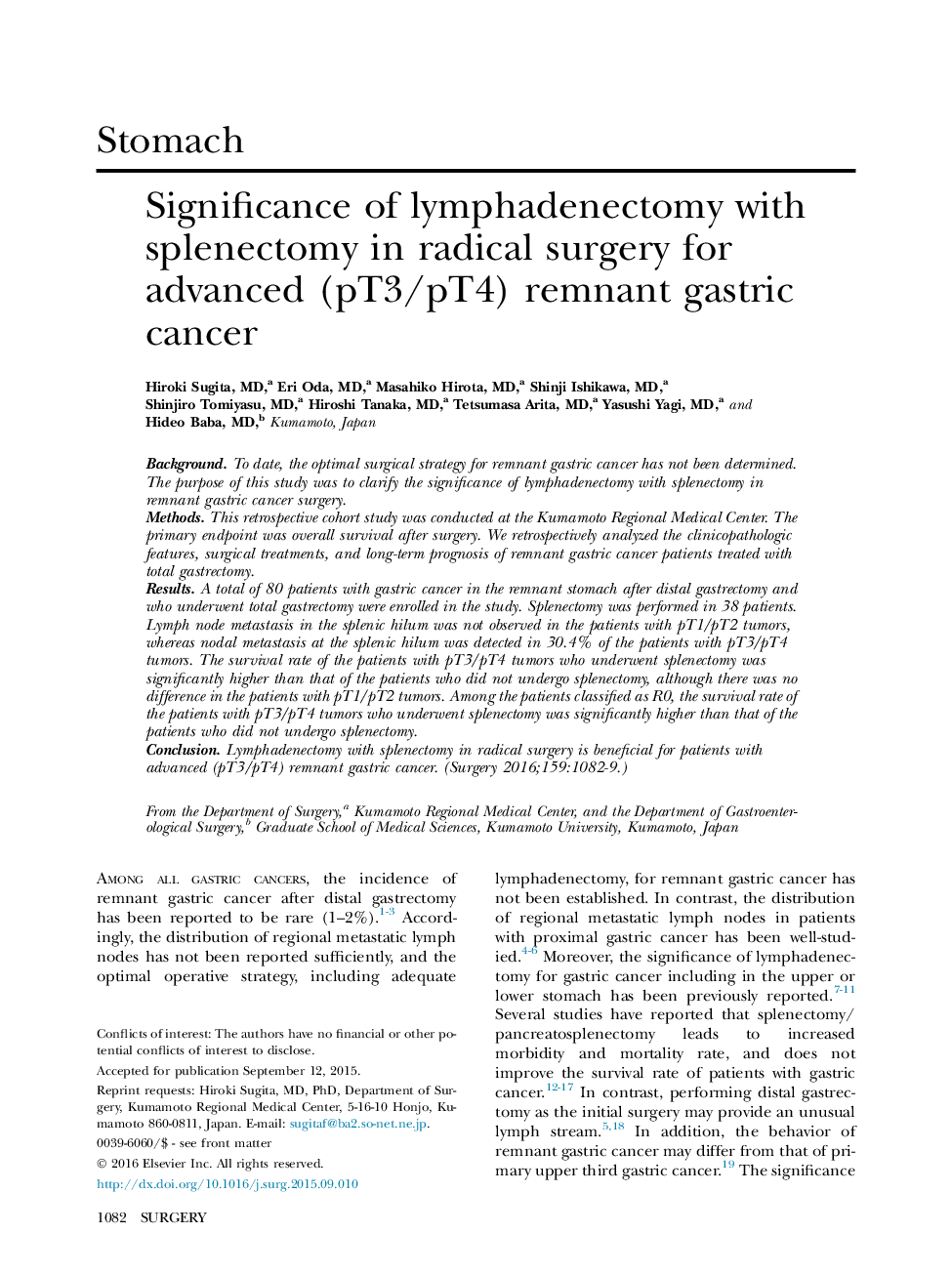| Article ID | Journal | Published Year | Pages | File Type |
|---|---|---|---|---|
| 4306498 | Surgery | 2016 | 8 Pages |
BackgroundTo date, the optimal surgical strategy for remnant gastric cancer has not been determined. The purpose of this study was to clarify the significance of lymphadenectomy with splenectomy in remnant gastric cancer surgery.MethodsThis retrospective cohort study was conducted at the Kumamoto Regional Medical Center. The primary endpoint was overall survival after surgery. We retrospectively analyzed the clinicopathologic features, surgical treatments, and long-term prognosis of remnant gastric cancer patients treated with total gastrectomy.ResultsA total of 80 patients with gastric cancer in the remnant stomach after distal gastrectomy and who underwent total gastrectomy were enrolled in the study. Splenectomy was performed in 38 patients. Lymph node metastasis in the splenic hilum was not observed in the patients with pT1/pT2 tumors, whereas nodal metastasis at the splenic hilum was detected in 30.4% of the patients with pT3/pT4 tumors. The survival rate of the patients with pT3/pT4 tumors who underwent splenectomy was significantly higher than that of the patients who did not undergo splenectomy, although there was no difference in the patients with pT1/pT2 tumors. Among the patients classified as R0, the survival rate of the patients with pT3/pT4 tumors who underwent splenectomy was significantly higher than that of the patients who did not undergo splenectomy.ConclusionLymphadenectomy with splenectomy in radical surgery is beneficial for patients with advanced (pT3/pT4) remnant gastric cancer.
